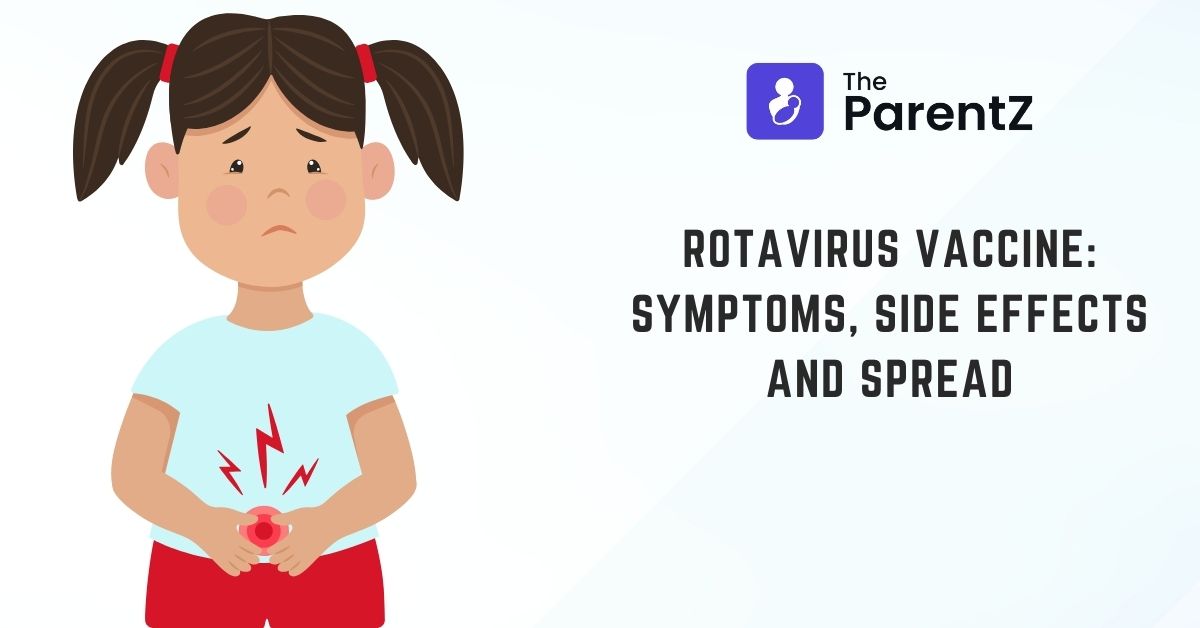When to give vaccine?
RotaVirus vaccine is an oral vaccine. It is a live attenuated form of vaccine. Two forms of vaccine are present, the monovalent Rotarix and the pentavalent Rotatex. It is a part of the newborn vaccination schedule in most countries to prevent diarrhoeal diseases. According to the WHO recommendation, both have a different schedule.
2 doses are recommended for Rotarix. The first dose can be given between 2-4 months of age at minimum and no later than 12 weeks. The second dose should be given by a maximum of 24 weeks. The interval between the two doses is 4 weeks. 3 doses are recommended for RotaTex. The age for the administration of doses is 2, 4 and 6 months. All three doses should be completed before the child reaches the age of 32 weeks.
Why should the oral vaccine be given?
Administration of the oral rotavirus vaccine is extremely important for the prevention of diarrhoeal diseases in a child. It is even more important in developing nations where such diseases are rampant. Diarrhoea in a child is very dangerous and can very quickly lead to dehydration. It is extremely common between 6 months and 2 years of age when complimentary food is introduced to the child. To prevent development of gastrointestinal infection in a child which leads to diarrhoea, rotavirus vaccine must be given.
What are the side effects?
The side effects which may develop post a RotaVirus vaccination are:
- The child may be irritable and not feel well.
- The child can develop a slight fever. It is nothing to be concerned about and can be managed at home by paracetamol itself. Care should be taken to give appropriate doses of the medication depending on the age and weight of the child.
- The child may develop a tummy ache or appear queasy.
- The child may develop a mild diarrhoea.
- The child may feel nauseous and have one or two episodes of vomiting.
- Both diarrhoea and vomiting are mild side effects of the oral vaccine. Care should be taken to keep the child hydrated by giving plenty of oral fluids. WHO approved ORS may also be given.
- By far the most dangerous side effect is that the child may become more prone to intussusception of the intestine. It means that the intestine of the child may loop and telescope into itself. It is a rare side effect.
What is rotavirus?
RotaVirus refers to a group of viral agents which are responsible for causing enteritis or an infection of intestines in humans. RotaVirus is the most common cause of diarrhoea in young infants and children. It is a very common agent and widely spread. Almost all children are at one time exposed to RotaVirus infection in their lifetime.
What are symptoms of rotavirus?
The most common age for development of RotaVirus infection is in children of the age group 2-6 months. It is a mild to severe disease with mostly gastrointestinal symptoms. The symptoms of Rotavirus infection are:
- Nausea and vomiting develop first in a child.
- Watery diarrhoea is the major symptom of infection. There can be multiple episodes of diarrhoea in a day. This leads to dehydration in a child as large volume of water is lost in each episode.
- Low-grade fever may also be present in children.
Is rotavirus infection serious?
RotaVirus infection ranges from a mild infection to serious infection. It is a very common infection and almost every child suffers from a rotaviral infection at some point or the other. Diarrhoea caused by RotaVirus is more serious than diarrhoea caused by bacterial agents. A rotaviral diarrhoea is more likely to cause severe dehydration and other complications in children.
How does rotavirus spread?
There are two most common routes of spread of rotavirus infection . These include:
- The most common method of spread is through the feco-oral route. Contaminated water, food or milk lead to the spread.
- Direct transmission can occur in cases of poor hygiene. Contaminated hands, utensils or objects lead to direct transmission.








Be the first one to comment on this story.